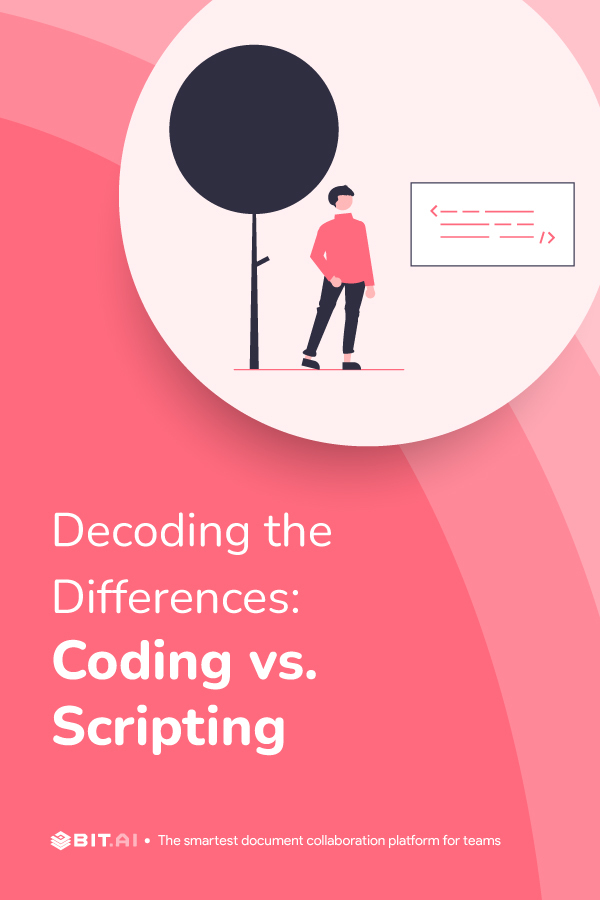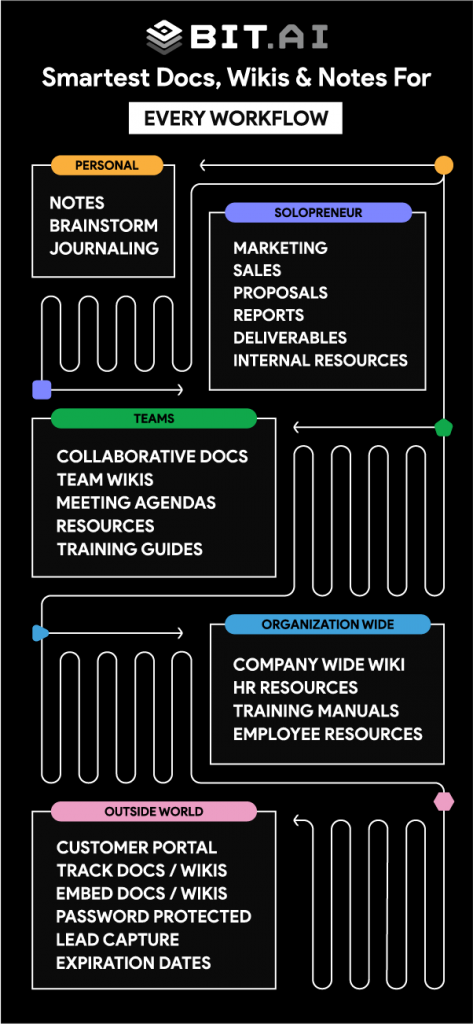You’re a beginner in the tech world, and you overhear two conversations. In the first, someone says, “I’m coding a program to analyze data for our project,” and in the second, another person mentions, “I wrote a script to automate routine tasks on my computer.” To a newcomer, it might seem like coding and scripting are just two ways of saying the same thing – creating something for a computer.
However, a closer look reveals a significant distinction between the two. Coding involves the creation of intricate software applications by crafting code from scratch, often utilizing languages like Java or Python. On the flip side, scripting entails the development of scripts or small programs that automate fundamental operations and enhance existing applications.
Whether you’re a programming novice or a seasoned coder, understanding these nuances is crucial. This discussion aims to unravel the mysteries of Coding vs Scripting, providing insights to help determine which aligns better with individual needs. So, let’s explore these concepts further, bringing clarity to these two concepts: coding and scripting.
What is Coding?
Coding is the process of creating instructions for computers using programming languages. It’s how we communicate with machines to make them perform specific tasks. This skill enables the development of various software, apps, and websites.
To start coding, you choose a code editor, a tool that translates your written code into a functional application. Whether it’s a simple program saying “Hello World” or a complex app like Google or Facebook, coding involves problem-solving, research, and creativity.
Different coding fields exist, such as web development for websites or game development for games like Fortnite. Programmers use languages like Python or Java to write code. For example, in Python, creating a program to calculate the average of three values involves defining a function and executing it.
Coding is essentially turning ideas into executable computer programs, a crucial skill in today’s technology-driven world.
What is Scripting?
Scripting is a type of coding that breathes life into a program. Unlike static coding that creates unchanging programs, scripting introduces dynamism. Picture a static website merely displaying images and text – that’s coding. Now, add scripting, and suddenly, those images and text start moving around, making the website dynamic. Scripting is about adding functionalities to a program.
Moreover, scripting isn’t limited to your creations; it extends to controlling others’ programs using APIs, which are bits of code granting control. For instance, you want an app giving daily weather notifications – instead of struggling for weather data, use a weather API. Scripting also unleashes automation, like a script emptying your computer’s recycling bin or sending texts to missed calls.
In essence, scripting is an integral part of coding, turning static websites dynamic and enabling program control and automation. It’s a versatile skill, executed using languages like JavaScript or Python, simplifying tasks and making programs more responsive.
Differences between Coding and Scripting?
When we delve into the world of programming, the distinctions between coding and scripting become apparent, each serving unique purposes. Coding is the art of developing standalone applications or comprehensive software systems. In this, programmers use languages such as Python, C++, and Java to create intricate and multifaceted programs.
Coding demands a profound understanding of programming principles, making it a complex and time-consuming endeavor. The resulting applications, be it operating systems, web browsers, or games, are standalone entities designed to function independently.
On the flip side, scripting is tailored for a different purpose – the automation of repetitive tasks and the amalgamation of elements within an application. Scripting employs high-level languages like JavaScript, Perl, and Bash. Unlike coding, scripting is more about simplicity and efficiency, with a focus on task automation rather than creating elaborate applications.
The learning curve for scripting is gentler, making it more accessible for newcomers to programming. Scripting languages are interpreted, executing commands one by one, which is more straightforward compared to the compilation process of coding languages.
One significant disparity lies in the development time required for coding versus scripting. The depth and complexity of coding result in a lengthier development process, involving extensive testing and debugging. Conversely, scripting, with its emphasis on task automation, is quicker to develop. Maintenance also sets these two apart. Coding necessitates regular upgrades and maintenance for bug fixes and ensuring compatibility, while scripting, geared towards automation, often requires minimal upkeep.
Debugging, a critical aspect of programming, differs in its intricacy between coding and scripting. Debugging code demands a deep understanding of the programming language, making it a time-consuming process in coding. On the other hand, debugging scripts is generally easier and quicker due to the shorter length of scripts.
In terms of interactivity, coding produces independent programs that may not be immediately user-interactive. Scripting, however, can be employed to create interactive elements within a larger application. Portability is another factor where coding and scripting diverge. Coding languages may be unique to a single operating system or platform, while scripting languages are often more portable and can be executed on various systems.
Scalability is a notable difference as well. Coding can be used to build applications that are scalable, capable of handling substantial amounts of data and traffic. In contrast, scripting has limited scalability since its primary focus is on task automation rather than the development of complex applications.
Cost considerations also play a role in choosing between coding and scripting. Coding, with its complexity and longer development time, may incur higher costs. Scripting, with its shorter development time and resource requirements, is generally less costly.
Summing up these differences, the table below provides a concise overview of the key distinctions between coding and scripting:
| Aspect | Coding | Scripting |
|---|---|---|
| Purpose | Developing standalone applications | Automating repetitive tasks, combining elements |
| Languages Used | Python, C++, Java | JavaScript, Perl, Bash |
| Complexity | Higher understanding of programming | Simple to learn and implement |
| Development Time | Longer due to depth and complexity | Easier and quicker, focuses on task automation |
| Maintenance | Regular upgrades and maintenance | Rarely requires maintenance |
| Debugging | Time-consuming, requires in-depth coding | Easier and quicker, shorter scripts |
| Interactivity | Produces independent programs | Creates interactive elements for applications |
| Portability | Unique to a single OS or platform | More portable, can be executed on various systems |
| Scalability | Builds scalable apps for data and traffic | Limited scalability, task automation focus |
| Cost | More costly due to complexity and time | Less costly with shorter development time |
Best Programming Languages For Coding and Scripting
Programming languages are like tools in a craftsman’s workshop – each has its own purpose and strengths. When it comes to coding and scripting, the choice of language depends on what you want to build. Let’s explore three languages that stand out in the coding and scripting arena.
1. Python:
The first on our list is Python, a versatile language with a syntax that feels almost like plain English. Python finds its applications in web development, mobile development, AI, and even game development. Learning Python opens doors to opportunities with major companies like Google, YouTube, Dropbox, Spotify, and Instagram.
While Python is beginner-friendly, diving into it on your own might be challenging. Consider investing in a good course to grasp the language’s intricacies and build real-world applications.
2. JavaScript:
Next up is JavaScript, a language that operates within web browsers. Widely used for web and mobile development, JavaScript has left its mark on applications like Uber, LinkedIn, Netflix, and Candy Crush. If you’re interested in coding for mobile apps and websites, JavaScript is a solid choice. Plus, it’s known for its beginner-friendly nature.
Explore a programming course to get a handle on JavaScript, especially if you’re keen on making the most of its benefits.
3. C#:
The final language on our list is C#, pronounced C sharp. It’s a bit more complex but brings its own set of advantages. C# is often employed in creating computer games or other resource-intensive programs. It’s not limited to this; C# can also be used in web and mobile development. Real-world applications include Unity (a game engine), Photoshop, Microsoft Edge, Fortnite, and many more.
If you’re drawn to the power of C#, consider a comprehensive course that walks you through the language and its applications.
Choosing the Right Language:
Now, the big question: Which language is right for you? The answer lies in your goals. While all three languages are versatile, they shine in specific domains. Python excels in automating tasks and creating lightweight programs. JavaScript is your go-to for diverse websites and mobile apps. If you’re dreaming of developing games, C# is your ally.
Other Scripting Languages:
Apart from the trio mentioned, there are other scripting languages worth noting:
- Node.js: A framework for writing JavaScript-based apps.
- Bash: Ideal for scripting in Linux environments, creating reusable scripts.
- Ruby: A powerful language for web development, known for flexibility.
- Perl: Famous for text manipulation, widely used on high-traffic websites and servers.
In summary, choosing the right language boils down to your aspirations. Python, JavaScript, and C# offer diverse opportunities, and beyond them, other languages cater to specific needs. Consider your goals, explore the languages, and start your coding journey.
Final Thoughts
Understanding coding and scripting can be a bit confusing, but the bottom line is, they’re quite alike. Don’t stress about which one you’re doing; just focus on getting good at coding in your chosen programming language.
Whether it’s coding or scripting, mastering either opens doors for you. We’ve broken down the differences, highlighting their uses and advantages. Now it’s your turn to dive in.
Choose a programming language from the list, and aim to become the best programmer in that language. The key is to realize you can excel in both coding and scripting. So, embrace the learning journey and watch opportunities unfold.
Further Reads:
15 Resources to Learn Coding/Programming Online (Practice + Theory)
Code Reviews Decoded: Insights into Process, Benefits & Practices!
13 Programming Blogs and Websites to Improve Your Coding Skills!
The Ultimate Code Review Checklist to Master Code Quality!
What is Collaborative Coding? Pair Programming, Mob Programming!


Related posts
Bit.ai | Watch to Learn More
What is Bit.ai?
Bit.ai is an innovative AI-driven knowledge and Document Managment suite designed to empower knowledge workers by streamlining the creation of, documents, wikis, and notes. With an intuitive interface and seamless integration, Bit.ai acts as a versatile assistant to help you collaborate, generate, organize, and visualize your ideas effortlessly. Whether you are drafting a report, managing a project, collaborating with your team or clients, or brainstorming new concepts, Bit.ai brings intelligence and creativity to every aspect of your work process.


